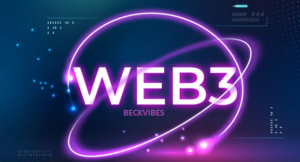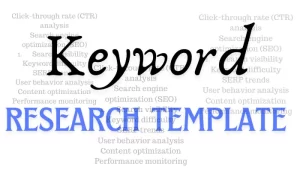
BLOCKCHAIN TECHNOLOGY AND IT’S SIGNIFICANT IMPACT

Blockchain Technology and It’s Significant Impact functions as a decentralized digital ledger. Information is recorded and stored in a sequence of blocks that are connected by a chain. A list of transactions is contained in each block, which is added to the chain permanently and cannot be removed. Blockchain is now transparent, safe, and impervious to manipulation. It also eliminates the requirement for a central authority by enabling several parties to share a visible and impenetrable record of transactions. The notion of blockchain was first announced in 2008 as the underlying technology for Bitcoin, a digital cryptocurrency. Since then, its uses have expanded beyond cryptocurrency, and its potential to completely transform a number of industries has attracted a lot of attention.
KEY FEATURES OF BLOCKCHAINS
- Decentralization: Since blockchain relies on a decentralized network, transactions are not governed by a single entity. Peer-to-peer systems with equal power distribution are used. Every member of the network has equal access to and control over the data.
- Transparency: Every member of the network can see transactions that are registered on the blockchain. This openness contributes to the development of accountability, trust and honesty.
- Security: Blockchain protects data and transactions with cutting-edge cryptographic methods. It is very difficult to change or tamper with the data once a block is added to the chain. Consensus techniques, such as proof-of-work or proof-of-stake, strengthen the network’s security.
- Immutability: A transaction is final and unchangeable once it is registered on the blockchain. This feature guarantees the data’s reliability and integrity. The Consensus processes and cryptographic hashing provide this immutability for quality service.
- Efficiency: Blockchain technology has the ability to reduce middlemen and streamline procedures, resulting in quicker and more affordable transactions.
KEY COMPONENTS OF BLOCKCHAIN TECHNOLOGY
- Blocks: Groups of related transactions are called blocks. A timestamp, a unique identity, and a link to the previous block are all included in each block.
- Distributed Ledger: This is the electronic ledger where all of the data and transactions are kept track of, it is dispersed among several computers, called network nodes.
- Hash Function: Every block has a distinct digital fingerprint, or hash, that is produced by a hash function. This guarantees the data’s security and integrity.
- Consensus Mechanism: To decide on the legitimacy of transactions and the ledger’s current state, blockchain networks employ consensus algorithms.
- Peer-to-Peer Network: Every node (participant) in a blockchain network has a copy of the complete blockchain. This allows for peer-to-peer operations. Decentralization and transparency are preserved as a result.
APPLICATION OF BLOCKCHAIN TECHNOLOGY FOR THE BENEFITS OF THE SOCIETY

- Supply Chain Management: By improving supply chain traceability and transparency, blockchain can guarantee the authenticity and caliber of goods. Businesses in the food and pharmaceutical industries may find this especially helpful.
- Voting Systems: Blockchain technology can offer transparent and safe voting methods, lowering the possibility of fraud and boosting public confidence in the democratic process.
- Identity Verification: By enabling digital identity verification, blockchain technology gives people control over their personal data and lowers the possibility of identity theft.
- Financial Services: By enabling quicker and more secure transactions, cutting costs, and increasing accessibility to financial services, blockchain has the potential to completely transform the financial industry.
- Peer-to-peer energy trading, which enables people and companies to directly purchase and sell renewable energy, is made possible by blockchain technology and encourages democratization and sustainability.
DECENTRALIZATION AND SECURITY
Decentralization is the absence of a central authority over blockchain data or transactions. Rather, it functions through a peer-to-peer network in which all users have equal power. By doing away with the need for middlemen, this improves transaction efficiency and lowers the possibility of a single point of failure.
Blockchain employs sophisticated cryptographic methods to guarantee the confidentiality and integrity of data in terms of security. Every transaction is recorded on several nodes throughout the network and protected by a distinct digital signature. Because of this, hackers will find it very difficult to alter the data or commit fraud.
Blockchain is an effective technology for many applications because of its decentralized and secure features, which offer transparency, trust, and defense against unwanted access.
USE CASES OF BLOCKCHAIN TECHNOLOGY
- Supply Chain Management: The movement of goods along the supply chain may be tracked and verified using blockchain technology. This can aid in guaranteeing the genuineness, excellence, and moral procurement of goods.
- Healthcare: Patients can have more control over their data and privacy thanks to blockchain’s ability to securely store and distribute patient records. Additionally, it helps simplify procedures like pharmaceutical supply chain management and medical billing.
- Finance and Banking: By enabling safe and transparent transactions, blockchain technology has the potential to completely transform the financial industry. Additionally, it can enhance identity verification, lower fraud, and facilitate quicker cross-border payments.
- Real estate: By securely storing ownership, titles, and contracts, blockchain helps streamline real estate transactions. This can improve transparency, decrease fraud, and streamline the procedure.
- Intellectual property: Blockchain technology can be used to safeguard intellectual property rights and provide ownership confirmation. This can be especially helpful in fields like digital content, music, and art.
SMART CONTRACT IN BLOCKCHAIN TECHNOLOGY
Self-executing contracts, or smart contracts, have the conditions of the contract explicitly encoded into the code. So therefore, Once the predetermined criteria are satisfied, they automatically implement and enforce the terms of the agreement.
On blockchain technology systems like Ethereum, smart contracts are developed to enable decentralized and trustless transactions. Transparency, security, and efficiency are provided, and the need for intermediaries is removed.
Smart contracts allow you to automate a variety of agreements, including supply chain management, voting systems, and financial transactions. They can expedite contract execution, cut down on expenses, and get rid of human mistakes .
It’s an intriguing idea that could completely transform the way we manage contracts and transactions.
BENEFITS OF BLOCKCHAIN TECHNOLOGY

- Trustworthy and Efficient Transactions: Blockchain eliminates the need for middlemen and allows for trustworthy and efficient transactions. This can expedite government procedures, cut down on red tape, and speed up transactions.
- Data Integrity and Security: The blockchain’s cryptographic structure guarantees data integrity and security. The immutability of data recorded on the blockchain lowers the possibility of fraud and illegal access.
- Accountability and Transparency: Blockchain ensures that transactions and processes are visible to authorized parties by providing an immutable and transparent ledger. Increased accountability and a lower chance of corruption result from this transparency.
- Automation with Smart Contracts: Self-executing blockchain code, or smart contracts, have the ability to automate and enforce contracts. This can decrease the need for manual involvement by streamlining several government procedures, such procurement.
- Blockchain technology has the potential to offer a safe, decentralized foundation for digital identity management. This can lower the chance of identity theft and improve the security of citizen data.
- Better Government Services: Tax collection, licensing, and registration procedures are just a few of the government services that blockchain can safeguard and optimize. Administrative expenses can be decreased so as to increase productivity.
- Decreased Fraud and Corruption: The immutability and transparency of blockchain technology can aid in the decrease of fraud and corruption in government processes. This is especially helpful for financial transactions and government spending.
- Simplified Public Records: Public records can be transparently and securely maintained with blockchain technology. This comprises documents pertaining to births, deaths, land ownership, and other important data.
FUTURE POTENTIALS OF BLOCKCHAIN TECHNOLOGY
- Decentralized Finance (De-Fi): With cryptocurrencies, blockchain has already completely transformed the financial sector, but it may yet go much farther. By providing decentralized lending, borrowing, and trading choices, De-Fi applications built on blockchain can increase accessibility to traditional financial systems.
- Internet of Things (IoT): By offering a decentralized and impenetrable mechanism for data sharing and device coordination, blockchain can improve the security and effectiveness of IoT devices. This can increase the overall dependability of IoT networks and provide safe automated transactions.
- Supply Chain Optimization: By offering real-time visibility, transparency, and traceability, blockchain technology helps improve supply chain operations. This can guarantee sustainable supply, cut down on inefficiencies, and stop fraud.
- Improved Data Privacy: Blockchain technology can provide people more authority over the data that belongs to them. People may choose what information they share and with whom to share it, improving privacy and security, thanks to self-sovereign identification systems and encrypted data storage.
- Interoperability and Collaboration: Blockchain technology can facilitate easy communication and coordination between various systems and sectors. It can simplify procedures, enable safe data sharing, and develop fresh company concepts.
Frequently Asked Question (FAQ)?

What are some Applications of Blockchain Technology ?
This is one of the most frequently asked questions, and Blockchain ensures security through a combination of cryptographic techniques and decentralization. Let me break it down.
- Cryptographic Techniques: Blockchain protects data and transactions with sophisticated cryptographic algorithms. Every transaction forms a chain of blocks that is encrypted and connected to the one before it. This guarantees the data’s authenticity and integrity.
- Decentralization: Every computer in the blockchain network, referred to as a node, possesses a copy of the complete blockchain. A hacker would need to take over most of the nodes, which is extremely rare, in order to change a transaction.
- Consensus techniques: To authenticate and verify transactions, blockchain employs consensus techniques like Proof of Work (P O W) and Proof of Stake (P O S). By ensuring that all nodes concur on the blockchain’s current state, these measures strengthen its defense against attacks.
- Immutable Ledger: A transaction is nearly impossible to change or remove once it is registered on the blockchain. Because the transaction is stored across several nodes, it is transparent and impervious to tampering.
2. Can blockchain be used for other things aside from cryptocurrency trading?
The Blockchain technology is a vest technology and has expanded beyond cryptocurrency trading and can be used in numerous other applications across various specializations. This are some few examples :
- Supply Chain Management: The movement of goods along the supply chain may be tracked and verified using blockchain technology. It offers traceability, transparency, and aids in the fight against counterfeiting.
- Healthcare: Blockchain ensures accuracy and privacy while securely storing and exchanging medical records. Additionally, it helps simplify procedures like clinical trials and insurance claims.
- Voting Systems: Blockchain can improve voting systems’ transparency and security. It can end voter fraud and offer an unchangeable voting record.
- Real estate: Blockchain can simplify transactions involving real estate, cutting down on paperwork and boosting transparency. Additionally, it can make fractional ownership possible and streamline the process of confirming property titles.







